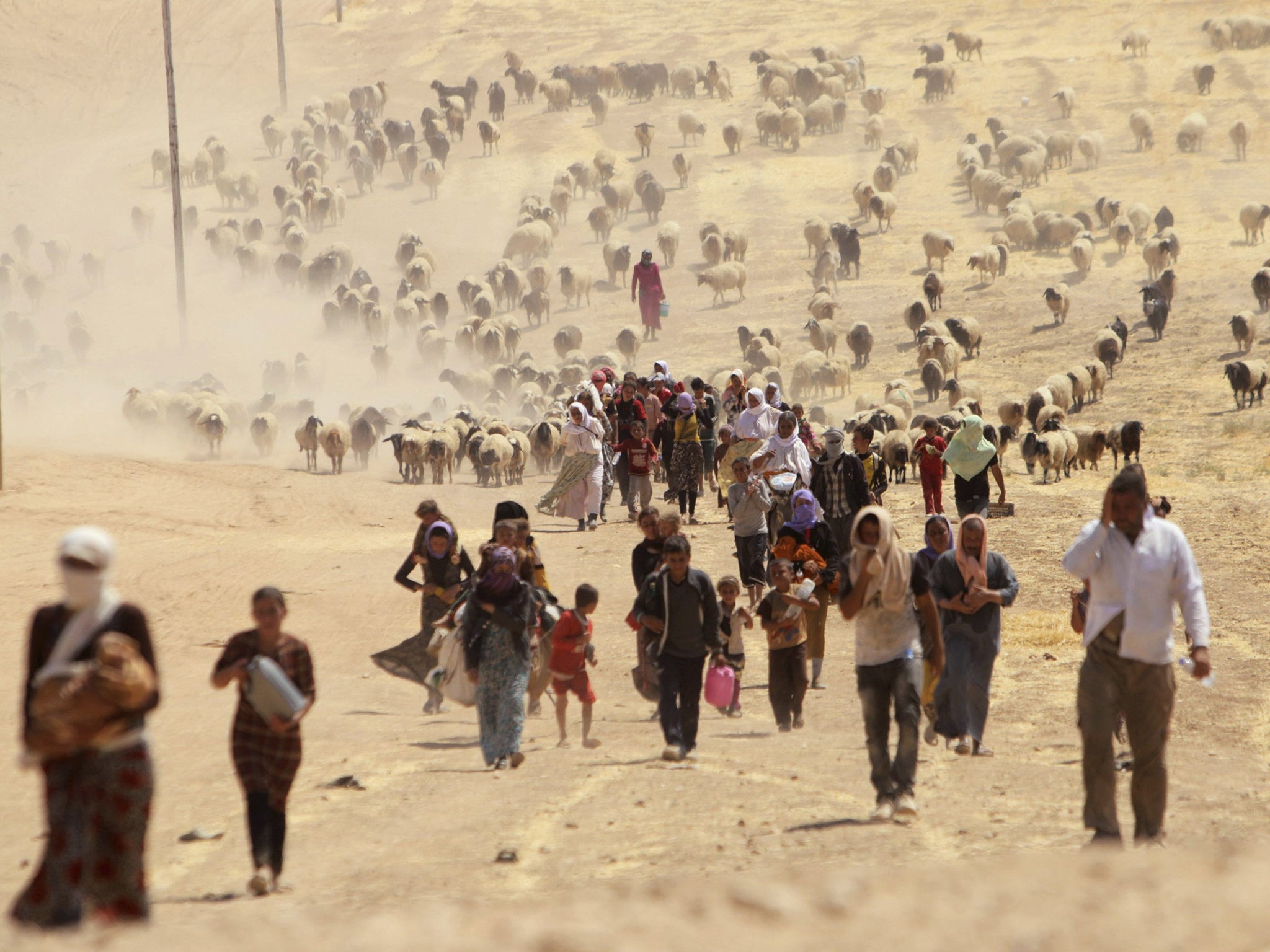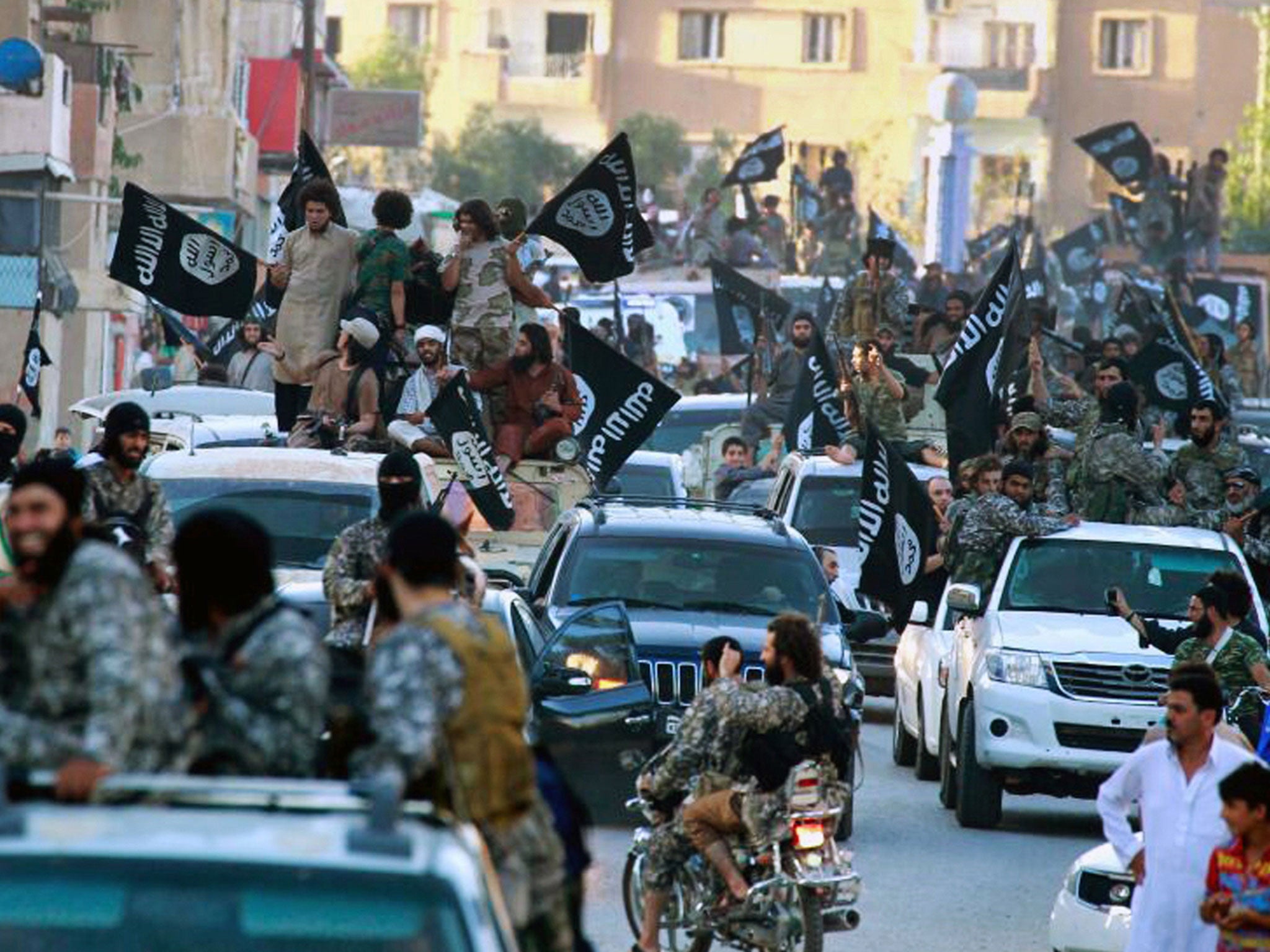‘Our pain will not end’: For the victims of Isis leader Abu Bakr al-Baghdadi, the war is not over
Victims of Isis crimes are scattered, traumatised and still in danger, reports Richard Hall


From the Sinjar Mountains of northern Iraq to San Bernardino in California, from Raqqa to London, Istanbul and Colombo: it is a testament to the evil perpetrated by Abu Bakr al-Baghdadi that his death has been celebrated across continents, ethnicity and faith.
But for the victims of Isis across the Middle East and around the world, the trauma unleashed by years of terror did not disappear with the fall of the caliphate, and it will not disappear with Baghdadi’s death.
“My brother told me the news yesterday. I was so happy when I heard,” says Saad Salmo, a 21-year-old Yazidi and former Isis captive from Sinjar, the minority community’s historic homeland.
“But Isis still has 22 of my relatives, including three of my brothers and one sister. Nothing will change until we get them back.”
Today, Salmo lives in a refugee camp in northern Iraq while her hometown still lies in ruins. She spent years in Isis captivity after being kidnapped along with thousands of other women and kept as slaves on Baghdadi’s orders. She was moved around Syria, from Tal Afar to Raqqa, and finally to Deir ez-Zor, where she was rescued last year.
Isis fighters rampaged through the town of Sinjar in northern Iraq in the early hours of 3 August 2014. They massacred thousands of men where they stood, and took an even greater number of women and children into slavery.
Those who managed to escape the first wave of killings were chased up the winding roads of Mount Sinjar, which has been a place of refuge for the Yazidis throughout their history. Many died of thirst as they fled.
It is estimated that thousands of Yazidis are still missing. Thousands more are living in limbo in refugee camps, unable to return to their destroyed homes. Mass graves are still being discovered in Sinjar to this day.
“For years we Yazidis have had so much suffering, so this news alleviates our pain,” says 25-year-old Naveen Rasho of Baghdadi’s death.
Rasho, a former radio announcer, was held captive for five years by Isis. She lived every day in fear. And initially, when the caliphate fell, she was too afraid to reveal her identity.
She ended up in Al-Hol camp with thousands of willing Isis wives, where she finally came forward to reveal her identity. But even today, having managed to flee the camp, she still lives in fear.
“As long as there are Isis fighter alive our pain will not end,” she says. “We wish Baghdadi had been killed by Yazidis.”
Under Baghdadi’s reign, Isis massacred and persecuted religious minorities. But the vast majority of its victims were Muslims in Iraq and Syria – people who were forced to live under the brutal caliphate.
In the Isis capital of Raqqa, the group would murder those who stood against it. The city’s central square became a macabre execution site where bodies would hang for days.
Like Salmo, Hussam Hammoud, a 27-year-old Raqqa native, is also displaced from his home. The ramifications of the terror group’s onslaught and occupation continue to reverberate today.
“It’s a victory for the Syrian people in general. He was the boss of the organisation who killed the most people from Raqqa,” he tells The Independent by phone.
“But we cannot consider that his death is the end of Isis. There are thousands of Isis members and families without anyone to guard them, people like them will form the cells. They are rebuilding already.”
Hammoud recently had to flee his home following a deal struck between Kurdish forces and the Syrian government. Many in the city now fear a return of government control in Raqqa.
“We had to make a lot of sacrifices because of Daesh (Isis). We lost our houses, we lost our relatives. We lost everything for nothing,” he says.

Part of Baghdadi’s grand plan for domination relied on drawing in extremist recruits from across the world. Its propaganda efforts were central to that. But few could have predicted the bloodthirsty nature of the group’s desire to be heard.
Aid workers, journalists and civilians who came to Syria to help were caught in the Isis web. They were paraded on camera before being killed.
For their families, too, the war never ended. Many of them have started foundations to campaign for people caught up in the same nightmare that they faced, or to fight for the causes they believed in.
“Whenever anything like this happens, it brings back all of the horror,” Diane Foley, the mother of American journalist James Foley, told The Atlantic in the aftermath of Baghdadi’s death.
Since the death of her son, she has launched the James W Foley Legacy Foundation, which advocates for the freedom of all American hostages abroad and the safety of journalists worldwide.
James Foley was a freelance journalist who went to Syria to document the suffering of its people. He was one of the first hostages publicly murdered by Isis.
In a statement, his mother said she hoped Baghdadi’s death would “hinder the resurgence of terror groups and pray that captured Isis fighters will be brought to trial and held accountable.
“I remain concerned about the dozen Americans held hostage in Syria, including Austin Tice and Majd Kamalmaz,” she added.
Mike Haines OBE, brother of David Haines, the British humanitarian aid worker murdered by Isis in 2014, similarly launched the Global Acts of Unity campaign, which promotes unity, tolerance and understanding in schools through visits.
“The devastating loss of my brother at the hands of Daesh had a life-changing impact on my family. We continue to feel his loss every day,” he said in a statement following Baghdadi’s killing.
“It has not been an easy path to take, to defy Daesh’s aims and channel that pain into a powerful, positive force for good and create Global Acts of Unity. But, by working with different faiths and communities, it has been the right one.”
Many other families continue to fight against the ideology of Isis in memory of their loved ones.
Join our commenting forum
Join thought-provoking conversations, follow other Independent readers and see their replies
Comments
Bookmark popover
Removed from bookmarks